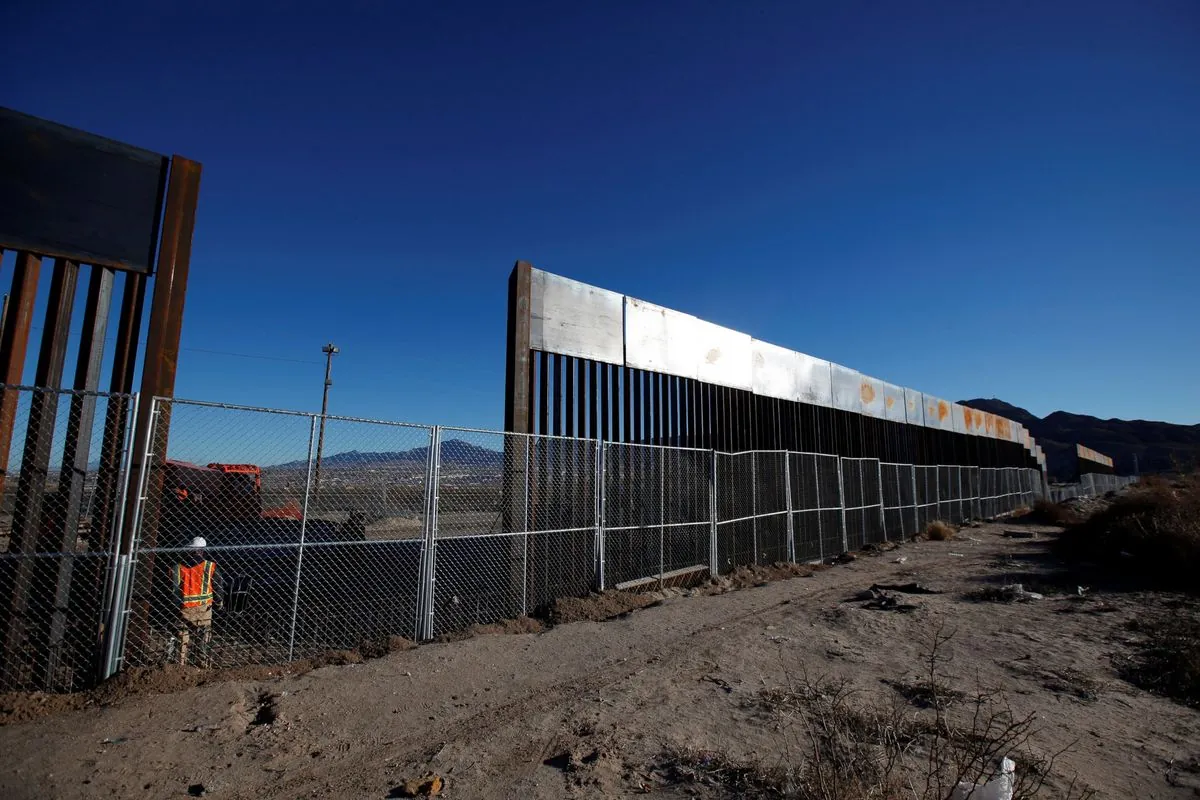U.S.-Mexico Border Crossings Hit Four-Year Low Amid Policy Shifts
Illegal border crossings plummet 77% since December, reaching a four-year low in July 2024. Biden administration credits policy changes, while Republicans criticize use of parole programs.

In July 2024, illegal crossings at the U.S.-Mexico border reached their lowest point in nearly four years, according to data released by U.S. Customs and Border Protection (CBP). This significant decline is attributed to the Biden administration's recent policy changes regarding asylum restrictions and increased enforcement efforts by the Mexican government.
Border agents recorded 56,408 illegal crossings in July, marking a 32% decrease from June and continuing a five-month downward trend. This represents a striking 77% reduction from the all-time high of 249,740 crossings recorded in December 2023.
The Biden administration implemented new measures in early June 2024 to limit access to the U.S. asylum system when illegal border crossings exceed an average of 2,500 per day. Since then, over 92,000 individuals have been deported to more than 130 countries, and fewer people are being released pending court hearings.

While border crossings typically decrease during summer months, recent years have seen migration patterns more closely tied to changes in U.S. enforcement policies. The Biden administration has sought to balance punitive measures for illegal crossings with expanded "parole" programs, allowing hundreds of thousands of people to enter the United States legally on commercial flights.
Republicans have criticized the administration's approach, accusing it of misusing parole authority to artificially lower apprehension numbers. Rep. Mark E. Green, chairman of the House Committee on Homeland Security, argued that the July statistics are misleading due to the redirection of potential border crossers to parole programs.
"The Biden-Harris Administration has taken effective action, and Republicans continue to do nothing."
The immigration debate remains a central issue in the upcoming presidential elections. Vice President Kamala Harris, the Democratic nominee, has criticized former president and Republican nominee Donald Trump's immigration record and Republican opposition to a bipartisan immigration bill.
In a related development, U.S. Citizenship and Immigration Services will begin accepting applications on August 19, 2024, for a new residency program targeting undocumented spouses of U.S. citizens who have lived in the country for a decade or more, along with their immigrant children. An estimated 500,000 immigrants and 50,000 stepchildren are expected to be eligible for this program.
The ongoing changes in immigration policy and border enforcement continue to shape the complex landscape of U.S. immigration, a topic that has been at the forefront of American politics for decades. As the nation approaches the presidential elections, the effectiveness and implications of these policies will undoubtedly remain a subject of intense debate and scrutiny.


































